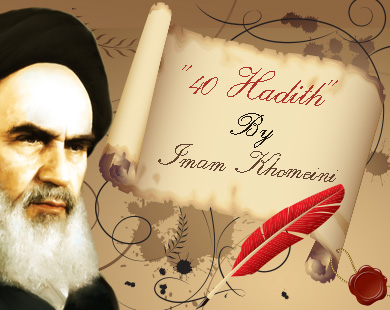With my continuous chain of transmission reaching up to Muhammad ibn Ya'qub al-Kulayni,
from al-Hussein ibn Muhammad, from al-Mu'alla ibn Muhammad, from al-Hasan ibn
'Ali al-Washsha', from 'Abd Allah ibn Sinan, from Abu `Abd Allah, may peace be
upon him, that he said: "Among the things pertaining to the soundness of a
Muslim's certitude [in faith] is that he would not please people while
displeasing God, nor blame them for something that God has not given him. For,
verily, [God's] rizq (provision, sustenance) is not brought about by anybody's
greed, nor is it withheld by anyone's disapproval, and were anyone of you to
flee from his rizq like lie flees death, his rizq would overtake him in the way
he is overtaken by death." Then he added, "Indeed God, with His justice and
fairness, has put joy and comfort in certainty (yaqin) and satisfaction (al-rida)
and He has put sorrow and grief in doubt and dissatisfaction:'1
Exposition:
Al-Jawhari says, sakhal (vowelized like faras) and sukht (vowelized like qufl)
are the opposite of satisfaction (rida). Hence sakhita means 'ghadiba' (i.e. 'he
became angry' or 'indignant') and such a one is sakil (angry). Al-qist, with
kasrah of the qaf, mean justice ('adl); hence its mention along with 'adl is for
the sake of elucidation.
Al-rawh and al-rahah are synonymous, meaning comfort, as mentioned by al-Jawhari.
Hence their mention alongside is for the sake of elucidation. Or that rawh means
the peace of the heart and rahah signifies the ease of the body, as stated by
Majlisi.2
As to al-hamm and al-huzn, al-Jawhari considers them as synonymous, on which
basis their mention by side of one another would be elucidatory. And Majlisi
says that hamm probably means the agitation felt by the soul at the time of
experiencing (doubt and dissatisfaction), and huzn is the sorrow and anxiety
felt after its passing away.3
Section:
As to the statement ولا يلومهم على مالم يؤته الله it has been considered to have two probable interpretations.
First, that he would not blame the people and complain for their refraining from
giving him something, as it is a matter subject to Divine power and providence,
and God, the Exalted, has not decreed that gift as part of his provision, and
one who is a man of conviction knows that it is an act of Divine providence
and so he would not blame anyone. This interpretation has been suggested by the muhaqqiq Fayd,4 may God have mercy upon him, and the learned traditionist,
Majlisi, has also affirmed it.5
The honourable Fayd, may God have mercy upon him, has also suggested another
interpretation, which is that one would not blame them for something God, the
Exalted, has not given them, for God, the Exalted, has gifted the people
differently and no one should be blamed for it [i.e for not possessing
something]. And this is like the tradition which states that "Had the people
known how God has created men, no one would blame another."6 The honourable
traditionist Majlisi, may God have mercy upon him, has said: "The improbability
of this interpretation is not hidden, especially on consideration of the
following explanatory phrase فإن الرزق لا يسوقه ('for, verily, [God's] provision is not facilitated
by. . .').7
In the opinion of this author, the second interpretation is more appropriate
than the first one, especially in view of the aforementioned explanatory phrase.
That is because one may blame people in the state of need and straintened
livelihood only if their livelihood (rizq) is under their own control and one's
effort and endeavour are the [efficient] means of its increase. Then one may say
[to another], '[Look] I have tried and made effort, whereas you have not done
so, and therefore you are afflicted with straitened livelihood." However, the
people of certainty know that livelihood is not obtained by one's greed and
effort, and so they do not blame others.
Reconciling Traditions Concerning Livelihood being Apportioned and Traditions
Exhorting Effort:
It should be known that the like of these noble traditions whose literal import
is that the rizq is apportioned and predetermined-something which is also
indicated by the noble verses of the Qur'an-do not contradict the traditions
which command one to seek livelihood and exhort one to make effort in one's
occupation and trade, and even consider the lack of effort as reprehensible and
blameworthy. Thus they consider one who fails to make an effort to seek
livelihood as one whose prayers are not answered and whom God does not provide
with livelihood. There are many traditions on this topic and it will suffice
here to cite one hadith:
From Muhammad ibn al-Hasan, the Shaykh al-Ta'ifah (al-Tusi), may his soul be
sanctified, who narrates with his isnad from 'Ali ibn `Abd al-`Aziz that he
said: "Abu `Abd Allah, may peace be upon him, asked me, `What is `Umar ibn
Muslim doing?' I said, `May I be made your ransom, he has devoted himself to
worship and he has abandoned his trade.' He said, `Woe to him! Doesn't he know
that the prayer of one who abandons the search (of livelihood) is not accepted?
Indeed a group of the Companions of the Messenger of Allah, may Allah bless him
and his Household, locked their doors and turned to worship when this verse was
revealed:
﴾And whosoever fears God, He will appoint for him a way out, and He
will provide for him whence lie never reckoned" (65:3)﴿. When the Prophet, may
Allah bless him and his Household, came to hear about it, he summoned them and
asked them, "What prompted you to do what you have done." They said, "O
Messenger of Allah, God has guaranteed our livelihood and so we have turned to
worship." He said to them, "The prayer of one who does that would not be
accepted. You ought to seek livelihood."'8
The reason for the absence of contradiction between the traditions is that
livelihood, and all matters for that, are subject to God's power even after
one's effort. Our effort is not an independent agent in the acquisition of
livelihood. Rather, to make effort is a duty of the creatures, and the
ordainment of the affairs and all apparent and non-apparent means, most of which
are beyond the control of the creatures, is by the determination of the Exalted
Creator. Hence a human being of sound conviction and informed of the courses of
matters-while he does not refrain from effort and performs his duties as
prescribed by reason and revealed law, and not closing the door of effort with
false excuses-still considers everything as being derived from the sacred Divine
Being and does not consider anything as having any efficiency on the plane of
being and its perfections. The seeker, the seeking, and the sought derive from
Him. That which this noble tradition says, that the man of sound conviction does
not blame anyone for the lack of increase in the people's livelihood, means that
if they make the usual amount of effort they are not to be blamed. Moreover, to
blame those who do not make the effort is preferable in order to induce them to
effort-a point which is asserted in the noble traditions.
In fine, this theme is one of the ramifications of jabr and tafwid
(predestination and free will) and one who has studied that issue can discover
the underlying fact of the matter, whose elaboration is beyond the scope of our
discussion.
Section: On the Signs or Soundness or Conviction:
In this noble tradition two things are considered the signs of the soundness of
one's conviction. First, that one should not seek the pleasure of the people at
the cost of God's displeasure and wrath. Second, one should not blame people for
what God has not given them. These two are the fruits of perfect conviction, and
their opposite qualities are due to the weakness of conviction and an ailing
faith. In these pages, whenever appropriate, we have explained faith and
conviction and their fruits. Here, too, we shall briefly mention these two
qualities in their state of soundness and health as well as their opposite
condition.
One should know that a man seeks the pleasure and satisfaction of people and
tries to win their hearts and to be in their good graces because he considers
them to be effective in matters that are of his interest. For example, one who
loves money and wealth feels humble before the rich; he flatters them and is
obsequious in front of them. Those who seek position and outward honour, flatter
the subordinates and obsequiously seek to win their hearts somehow or another.
The same thing goes on in a circle. The subordinates flatter men of position and
the seekers of position flatter the mean subordinates, except those who, on the
either side of the matter, have trained themselves through spiritual discipline
and seek the pleasure of God. The world and its adornments do not shake them,
and they seek the pleasure of God in leading, and seek God and truth in
following.
The Twofold Classes of the People:
The people of the world are briefly divisible into two classes. They are either
those whom certitude has brought to the point that they see all the outward
means and apparent agents as being subject to the perfect and eternal will of
the Necessary Being. They see and seek nothing except God, and they believe that
lie is the sole Master and Agent in the world and the Hereafter. Finding a
certitude unmarred by deficiency, doubt and hesitation, they have true faith in
one of the noble verses of the Qur'an, which says:
﴾Say: "O God, Master of all sovereignty, Thou givest sovereignty to whom Thou
wilt, and seizest sovereignty from whom Thou wilt .... (3:26)﴿
They consider God, the Exalted, the Master of the kingdom of being and all gifts
to be from that Sacred Being. They consider all the ebbs and flows of being and
all the existential perfections to be derived from the Sacred Being in
accordance with the [best] order [of existence] and the [universal] good. Of
course, the doors of gnosis are opened for such persons and their hearts become
divine. They do not attach any worth to the pleasure and displeasure of the
people and seek nothing except God's good pleasure. Their eager eyes do not seek
anything except God and in their hearts and with their entire being they murmur
the melody, "My God, when You grant us, who can intercept Your favour? And
should You deprive us [of anything], who can restore it to us?" Hence they close
their eyes to the people, their favours and their world, opening the eyes of
their need on God, glorious is His Majesty. Such persons would never exchange
the displeasure of God, the Exalted, with the pleasure of the entire order of
beings, as stated by the Commander of Faithful, may peace be upon him. While
they attach no significance to anything except God, the Exalted, and consider
all existents to be in need of Allah, nevertheless, they view all with the eyes
of wonder, mercy and compassion, and do not blame anyone for any matter except
in order to reform and educate him. Hence such were the prophets, may peace be
upon them, who viewed everything as belonging to God and as manifestations of
His Beauty and Glory. They did not view God's creatures except with love and
compassion, not blaming anyone in their hearts for any inadequacy and weakness,
though they did blame them outwardly for the sake of the general good and the
reform of the human family. This was among the fruits of the immaculate tree of
certitude and faith and their understanding of the Divine laws.
However, as to the second group, they are those who are oblivious of God, and if
perchance they attend, it is an inadequate attention and an incomplete faith. As
a result, since attention to multiplicity and the outward causes and means has
made them neglectful of the Cause of all causes, they seek the pleasure of the
creatures. At times they are such that they seek to acquire the goodwill of the
weakest of creatures while preparing the means of God's displeasure and wrath.
Thus they are led to accommodate to the sinners, or neglect the duty of amr bi
al-ma'ruf and nahy `an al-munkar when conditions call for its performance, or
they give decrees (fatwa) permitting what is unlawful, or are guilty of false
testimony, or backbite and slander the faithful to please worldly people and men
of outward status and position. All such conduct is due to the weakness of
faith, or rather it constitutes a degree of idol worship (shirk). Such a view
makes man prone to many fatal traits, including those mentioned in this noble
tradition. Such a person has a bad opinion of God's servants and he treats them
with enmity and hostility, blaming them and vilifying them in matters, and so
on.
Section: The Views of the Mu'tazilah and the Asha`irah and the Correct Position:
Majlisi, the traditionist, may God have mercy on him, in Mir'at al-uqul, has a
discussion under this noble tradition concerning whether the rizq apportioned by
God, the Exalted, is confined to what is lawful and whether it includes the
unlawful also. He has cited the conflicting opinions of the Ash'arites and the
Mu'tazilites on this issue and the recourse taken by the two sides to traditions
and narrated texts. He considers the Imami position to be in accord with the
view of the Mu'tazilites that the apportioned sustenance (rizq-e maqsum) does
not include the unlawful and is limited to the lawful. He also cites the
arguments of the Mu'tazilah that take recourse to the literal meaning of some
verses and traditions and are based on the literal meaning of `rizq'-as is the
practice of the Ash'arites and the Mu'tazilites.9 He has approved of the
arguments of the Mu'tazilah and, apparently, finds their statements to be in
accord with the dominant opinion of the Imamiyyah. However, it should be noted
of that this issue is one of the corollaries of the problem of jabr and tafwid,
and the Imami position in this regard neither conforms to that of the Asha'irah
nor to that of the Mu'tazilah. Rather, the Mu'tazili position is more worthless
and degenerate than that of the Ash'arites, and if some Imami theologians, may
God the Exalted be pleased with them, have inclined towards it, that has been
due to the neglect of the truth of the matter. As referred to earlier, the issue
of jabr and tafwid has remained much vague in the discussions of most of the
scholars of the two sects, and the controversy has not been resolved on the
basis of right criteria. Hence, the relation of this issue to the problem of
jabr and tafwid has gone mostly unnoticed, although it is one of its major
ramifications.
Briefly, the Ash'arite belief that the lawful and the unlawful form part of the
apportioned sustenance implies jabr, and the Mu'tazilite belief that the
unlawful does not form part of the apportioned sustenance implies tafwid. Both
of them (jabr and tafwid) are invalid and their falsity has been made evident in
its appropriate place. We, in accordance with established and demonstrable
principles, consider the lawful and the unlawful as apportioned by God, in the
same way as we consider sins to be by Divine determination (taqdir) and decree (qada'),
though it does not lead to jabr and invalidity. These pages are not appropriate
for setting forth the proof and I have set a condition with myself not to
discuss technical matters, myself being ignorant of their core reality.10
Accordingly, we shall confine ourselves to this passing reference, and God is
the Guide.
Marhum Majlisi has opened another discussion under this noble tradition, as to
whether it is absolutely obligatory upon God, the Exalted, to provide the
sustenance of His creatures or only in the case of effort on their part.11
This is a topic which is more appropriate to the principles of the theologians
and one must proceed in these discussions, in general, with another approach
based on metaphysical criteria and definite principles. What is preferable is to
abstain right away from this kind of discussions which are not entirely
fruitful, and we have pointed out earlier that the apportioning of sustenances
in accordance with Divine ordainment does not contradict with the making of
effort and endeavour in seeking it.
Section:
This section pertains to the explanation of the statement that God, the Exalted,
has placed joy and comfort in certitude and satisfaction and sorrow and grief in
doubt and displeasure and that this is in accordance with Divine justice. On
should know that the joy and comfort (rawh and rahah) mentioned in this noble
tradition, and so also the grief and sorrow mentioned therein, as they are
mentioned in relation to the determination and apportionment of sustenances,
pertain to worldly affairs and the search and acquisition of livelihood, though
in accordance with a certain interpretation their relation to affairs of the
Hereafter is also correct. Here, we intend to expound this [part of the] noble
tradition. One should know that a human being possessing convinced faith in God
and His ordainments and reliant on the firm pillar of the Absolutely Omnipotent,
Who determines all the matters in accordance with what is best for the creatures
(masalih) and possesses absolute and perfect mercy and is absolutely
All-compassionate and All-munificent, will of course find all difficulties
become easy for him by virtue of such a conviction and to him all hardships
become easy to bear. His effort in search of livelihood is very different from
the quest of the worldly people and those who are afflicted with doubt and
shirk. Those who rely on the apparent causes and means are continuously shaky
and anxious in their pursuits. And if they face any adversity they find it very
unpleasant, for they do not consider them to be accompanied with hidden
benefits. Also, one who considers his felicity to lie in the attainment of the
world is afflicted with pain and misery in its pursuit, losing comfort and
happiness. All his attention and care is spent in that pursuit. Thus we see that
worldly people are perpetually in a state of anguish and they do not possess the
peace of mind or of the body. Similarly, if the world and its ornaments are
taken away from them, they become subject to endless sorrow and grief. Should an
affliction visit them, they lose all forbearance and strength and they have no
fortitude in the face of events. The reason for it is nothing except their doubt
and shaky belief in Divine ordainment and its justice, and its fruits are such
matters as these. We have offered an explanation earlier in this regard and so
it will be inappropriate to repeat it.
As to the explanation of the dependence of these effects on certitude and
satisfaction, and of those effects on doubt and anger, of their being such by
Divine ordainment, and that this ordainment is just, that depends on the
explanation of the sway of the efficiency (fa'iliyyah) of God, the Exalted,
throughout the planes of being, without its leading to jabr, which is invalid as
well as impossible. It also depends on the causative explanation of the
perfection of the order of being, and both of these theses lie outside the scope
of these pages. And all praise refers to God, at every beginning and end.
* Book: Forty Hadith (An Exposition on 40 ahadith narrated through the
Prophet (pbuhh&hh) and his Ahl al-Bayt (a.s.)). By Imam Ruhullah al-Musawi al-Khumayni.
Translated by: Mahliqa Qara'i (late) and Ali Quli Qara'i.
1- Al-Kulayni, Usul al-Kafi, ii, p. 57, "Kitab al-iman wa al-kufr," "bab fadl
al-yaqin," hadith 2.
2- Al-Majlisi, Mirat al-'uqul, vii, 359, "Kitab al-iman wa al-kufr," "bab fadl
al-yaqin," hadith 2.
3- Ibid.
4- Al-Fayd al-Kashani, al-Wafi, iv, 269.
5- Mir'at al-'uqul, vii, 356, "kitab al-iman wa al-kufr," "bab fadl al-yaqin,"
hadith 2.
6- Al-Wafi, iv, 270.
7- Mir'at al-'uqul, vii, 357, "kitab al-iman wa al-kufr;" "bab fadl al-yaqin,"
hadith 2.
8- Al-Hurr al-Amili, Wasa'il al-Shiah, xii, 15, "kitab al-tijarah," "abwab
muqiddimat al-tijarah," hadith 7.
9- Fakhr al-Din al-Razi, al-Tafsir al-kabir, ii, 30.
10- Author's Note: However, as the hand is subject to His power, we have
briefly offered a study of this problem in the exposition of the thirty-ninth
tradition. [As stated by Imam 'Ali, may peace be upon him]:
I knew God [i.e. His omnipotence] through the annulment of decisions and the
breaking up of resolves.
11- Mirat al-'uqul, vii, 358 "kitab al-iman wa al-kufr," "bab fadl al-yaqin,"
hadith 2.




















